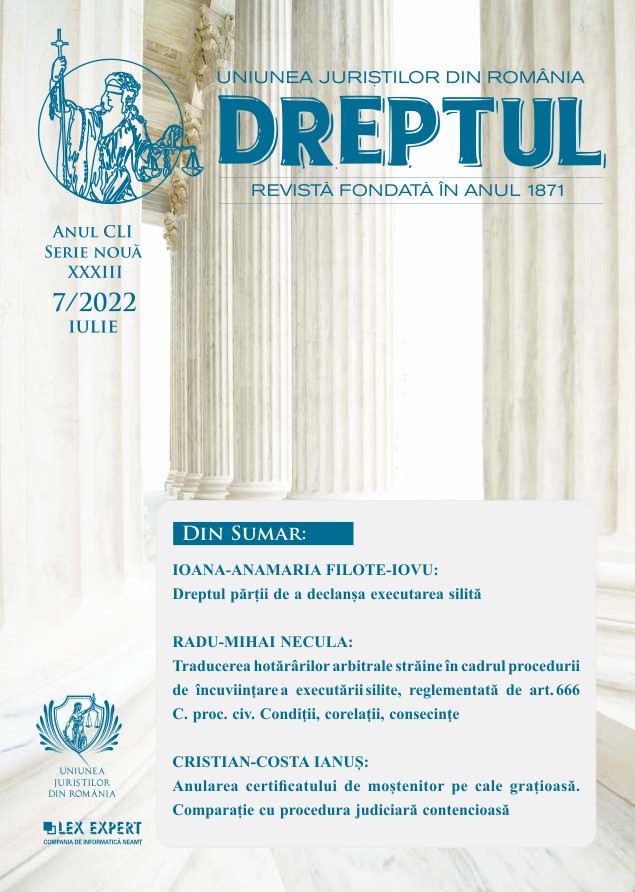The study analyzes the current account contract as an effective technique for simplifying long-term contractual relations, in the context of a large business volume, with its lending function. The legal definition of the contract has revealed that this contract performs, through the novation mechanism, a function integrating receivables coming from other contracts and operations of the parties in the current account, and the settlement of accounts is carried out through the offset system.
In addressing the legal characters of the current account contract emphasis has been placed on its intuitu personae character and arguments have been brought for combating the thesis of the ancillary character of this contract in the relation to the contracts and operations generating receivables recorded in the account. The effects of recording of the receivables in account (of extension of maturity and of unavailability) and the category of receivables incompatible with this recording in account, as well as the legal consequences of closing the account before deadline, which pave the way for the execution of the credit balance, have also been analyzed. The effects of the recording of receivables in the account have also been analyzed from a fiscal perspective, related to the application of VAT and of the profit tax. The current account was also analyzed in the context of the insolvency procedure, as a means of maximizing the debtor’s assets and of its beneficial effects in the process of judicial reorganization.
The main effects of the current account contract have been discussed under the translative aspect of the property right, marked by the moment of recording the receivable in the account, under the aspect of novation, as a legal instrument of integration in the account of the receivable, generated by the original contract or by the operation performed between parties from the perspective of offsetting the two amounts of receivables, from which the credit balance results, as a liquid and exigible receivable, susceptible to execution. The examination of the side effects of the current account contract refers to the interest applied to each receivable registered in the account and to the credit balance, as well as to the commissions and expenses related to the legal operations generating the receivables recorded in the account. Regarding the closing of the account, the two hypotheses have been analyzed, the one related to the final closing of the account, which coincides with the termination of the current account contract, and the one regarding the periodical closing, as well as the legal regime of the credit balance, resulting from the offset within each of the two hypotheses. The aspects regarding the presumption of approval of the credit balance, of its
contestation after approval, in connection with the material errors and the legal action for the rectification of these errors have not been omitted either. Finally, there have been discussed the modalities of termination of the current account contract on the deadline and by denunciation, in respect of the contracts concluded for an indefinite period.
CONTRACTUL DE CONT CURENT
15.00lei


